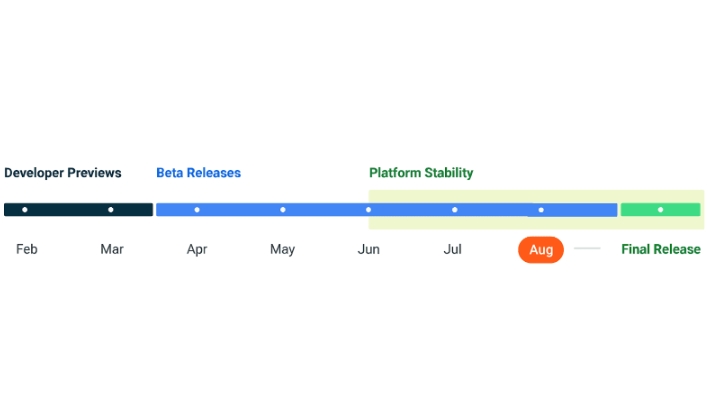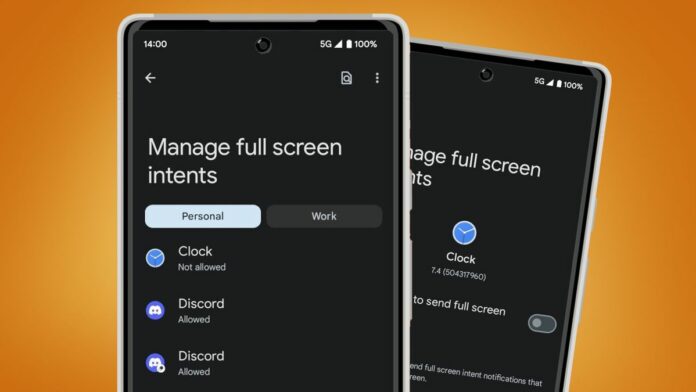Android 14 is nearing its full release, and the developers have discovered a handy new feature that will stop apps and games from hijacking your screen with notifications or ads.
As discovered by Android analyst Mishaal Rahman (below) and Android policeAndroid 14 contains a new option to disable full-screen notifications in settings. Apparently, this will be in a new settings option called “Manage Full-Screen Notifications”.
You can deactivate these notifications per application and leave some of the most important ones active, such as alarm clocks and phone calls, so you don’t miss any important announcements.
In Android 14, you can manually revoke the USE_FULL_SCREEN_INTENT permission from apps so they can’t send you full screen notifications. Later this year, Google Play will automatically revoke this permission from newly installed apps that don’t provide calling or alarm clock functionality! pic.twitter.com/plCSZDz94fAugust 9, 2023
But it looks like Google won’t stop there. In the release notes for Android developers As for the behavior changes across all apps, Google says it will “at the end of 2023” stop offering full-screen notifications to all apps unless they offer calling or alarm clock features.
Google says this is because “full-screen intent notifications are designed for extremely high priority notifications that require your immediate attention,” and some apps have abused this feature to send lower priority messages.
That said, you’ll probably still need to manually disable the permission for many apps even when Android 14 arrives. This is because, as Google states, the permission for full-screen notifications “remains enabled for apps installed on the phone before the user upgrade to Android 14”.
Android is betting heavily on privacy
Android 14 may have some cooler features, like improved lock screen customizations, but these notification controls are part of some UX changes that together will have a big impact on your phone (if it’s among compatible devices).
For example, in the same release notes, Google says you’ll also be able to give apps only “partial access” to photos and videos, meaning you’ll be able to select specific files instead of giving an app the keys of your entire library.
Google is clearly on a mission to push privacy into Android 14, which is expected to be released in its final version soon. We recently saw the arrival of an unexpected fifth beta for the operating system, which offered some important fixes for problems such as Wi-Fi scanning that consumes too much battery.
But unless there’s a sixth beta (which seems unlikely since Android 13 only had four and Android 12 had five) you can expect Android 14 to arrive in September, probably ahead of the expected iPhone 15 release on September 12.

